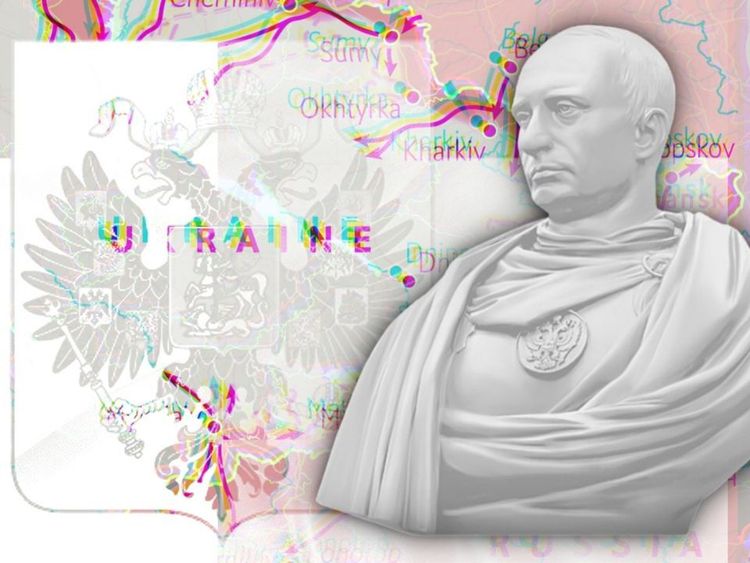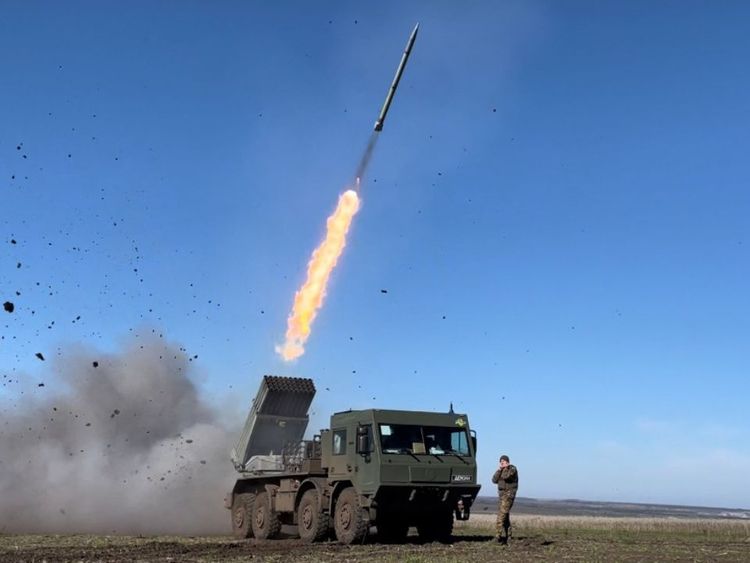
The 90s are Killing People: Why We Need a New Historical Narrative about That Era
Last August, Alexei Navany published a text, in which he strongly criticised those who, in his opinion, ‘sold, drank, wasted the historic chance which our country had in the early 90s’ - including Boris Yeltsin, ministers of ‘state reform’, and other well-known figures from the post-Soviet Russian elite. This statement, unsurprisingly, led to another round of discussion about the 90s.

In July 2023, the international left-wing community was shaken by the news of the imprisonment of Boris Kagarlitsky on the factitious charges of “justifying terrorism”, a code word for his staunch anti-war position. Karaglitsky, the well-known post-Soviet public intellectual, who was previously imprisoned under Brezhnev and Yeltzin, was abducted in Moscow and brought to Syktyvkar, 1,300 kilometers to the north of Russia’s capital. The aim was to isolate Kagarlitsky and cut him off support of his comrades. However, a strong international solidarity campaign led to the sociologist’s release back in December. Now, with his case reopened, Kagarlitsky who refuses to leave Russia as a matter of principle faces five years in prison. September Collective publishes this letter, which Boris wrote from behind bars, to call for reopening of the solidarity campaign for his immediate release with renewed vigor. Freedom to Boris Kagarlitsky and all political prisoners in Russia!

A huge scandal in Canadian politics and a painful blow to Ukraine's reputation — these are the terms used by the media to describe how the Canadian parliament and the Ukrainian delegation headed by President Volodymyr Zelenskyy gave a standing ovation to Yaroslav Hunka, a veteran of the Waffen-SS division ‘Galicia’. But how come he was invited to the parliament? Who ‘framed’ Canada and Ukraine? Who gave such a ‘gift’ to Russian propaganda? The Speaker of Parliament, Anthony Rota, took political responsibility for this and resigned. However, it is hard to believe that Mr. Rota knew the SS veteran personally and dreamed of bringing him into the limelight for the whole country to watch. There was someone who came to him with this ‘brilliant’ idea. Let's find out who.

September sat down with Quinn Slobodian, author of Globalists: The End of Empire and the Birth of Neoliberalism and Crack-Up Capitalism: Market Radicals and the Dream of a World Without Democracy to discuss his books, the history of neoliberal and libertarian ideas in the 20th and 21st centuries, the war in Ukraine and the current state of the left-wing movement.

Quite a lot of Russians, including President Vladimir Putin, even though outspoken opponents of the ideas of socialism, nevertheless regard the collapse of the Soviet Union as a personal tragedy. For them, it represented national humiliation for Russia and a chain of major territorial losses. They see in the Soviet project a kind of continuation of, in Putin’s own words, “the thousand-year Russian statehood.” But how did it happen that the revolution that destroyed the Russian Empire, aka the “Prison-house of Nations”, gave rise to a project, certain features of which evoke feelings of nostalgia and revanchism among highly reactionary Russian chauvinists? We publish an excerpt from Marxist historian Vadim Rogovin's book “Stalin's neo-NEP”, in which he describes the transition from the revolutionary deconstruction of the imperial legacy in the early Soviet years to its partial revival in the 1930s. Perhaps it was precisely these changes in the Soviet state that led many to consider it the “same Russia under a different name” and, after its collapse, encouraged the elites of already capitalist Russia to unleash a war to “gather together Russian lands”.

"September" met with mathematician and Russian left-wing politician Mikhail Lobanov to discuss his foreign agent status and his dismissal from the university. We also discussed the potential approaches to anti-war political organizing in Russia and beyond, and learned about Mikhail's plans for the "long-term political mission trip" he embarked on a month ago.

Andrei Yagoubov, climate activist and DIE LINKE member, who participated in the defense of the village of Lützerath against police forces and the RWE coal company back in January, gives his perspective on the standoff. This fight between grass-roots activists and united forces of corporations and the government presents itself as a part of the global struggle for democracy and the planet's and humanity's future. Lützerath might be lost but what comes next?

We live in historic times. Historians have long noted that in some periods time seems to thicken, and social contradictions which had previously unfolded gradually are now aggravated and can no longer find room for further coexistence. Current leaders might assure the masses that they are in control of the situation, but if the system goes haywire, this very attempt at mistimed control only worsens the conditions. Gigantic underlying processes are grinding at the superstructural mechanisms, and rulers do not realise the moment that in the long run will make them ex-rulers.

Big business, it seems, is that segment of the Russian elite which has lost most of all in the last year. Russian oligarchs have transformed from yesterday’s welcome guests in London, Monaco or Nice into personae non-grata. Their accounts are emptying, the list of Forbes billionaires is shrinking, and maintaining their usual standard of living is no longer sustainable. However, the ‘revolt of the oligarchs’ expected by many did not happen. We will try to understand how realistic such expectations were, why big business remains an organic part of the Russian political regime without requesting democratisation, and what has changed in its position within the system over the last year.

1991, Leningrad. The private office of the deputy mayor of the city. A reporter for the city's television channel interviews a young official from Anatoly Sobchak's team. In the frame — a man with a childish face in a white shirt. Behind him, you can see window blinds, a television, a table lamp, a telephone, open folders with papers. A typical Soviet office environment. But something does not add up. From behind the scenes, the voice of the journalist says that yesterday, he could still see a bust of Lenin in this office, but today it had disappeared somewhere. What had happened?

Murad Gattal on the causes and prerequisites for a new escalation in the Armenian-Azerbaijani conflict and the transformations that it caused in Azerbaijani society.

September met with Zhanna Chernenko, founder of two volunteer groups – Fempodmoga and Lingvo Volunteers, which help Ukrainian refugees in Europe in solving a variety of problems: from translating documents to cases of harassment and violation of labour rights.

Ukraine aid, like the war itself, is a point of contention on the international left. Supporters see aid as essential for Ukraine’s defense against an imperialist invader. Skeptics regard it as a giveaway to the war industry at best, a fig leaf for the US empire at worst. The dilemma is that both sides have a point. Aid has enabled Ukraine to push back its occupier, but — funneled through the military-industrial complex of the United States — this success is bound up with both war profiteering and the maintenance of US hegemony. Supporters of aid, among whom I count myself, need to grapple with this ambiguity, which is indicative of the complex issues anti-imperialists will face as great power competition heats up in an increasingly multipolar world.

It appears that in recent days Russia has been labeled ‘neoliberal’ with increasing frequency. At the very least, this is surprising for the country, where the degree of the state’s involvement in the economy is as significant as it is in Russia and where the president publicly criticizes “neoliberalism.” Is it fair to discuss Russian neoliberalism? In our new text, we attempt to explore why the mainstream approach to the Russian political dynamics is often remote from reality (as, for instance, in the case of the view that the current President subjected “the oligarchs” to his own interests and deprived them of ability to influence politics), whereas the theoretical framework of neoliberalism can explain much about today’s Russia.

At the end of October, Arshak Makichyan, a climate activist and Fridays for Future participant, and three of his family members — his father and two of his brothers — were stripped of their Russian citizenship by court order. Russian citizenship was the only one they had; the family had moved to Russia from Armenia when Arshak was one year old. The court ruled that Russian passports had been issued to them illegitimately; in the case of the Makichyans, some documentation was missing, which the Ministry of Internal Affairs itself lost during their registration. In February 2022, Arshak had declared his anti-war position, and a month later left Russia. He is now sure that the decision of the court was caused by his civil position. September discussed with Arshak the significance of this precedent for activism in Russia and the connection between anti-war and environmental protest, as well as the COP27 summit, the strategy and tactics of the climate movement, and prospects for a green transition.

A recent post about Kyrgyzstan on Instagram by the popular Russian blogger Ilya Varlamov brought a wave of accusations of imperialism upon him. In this critique, the emphasis was on the boorish way the blogger expressed these statements, while the ideological form of Varlamov’s argument, the concept of a ‘service country’ went almost unnoticed. Let us puzzle out what is wrong with this concept and why it gives rise to such ridiculous statements.

September spoke with Baiel Isayev, a Marxist and member of the organization KYRGSOC, about the socio-economic problems in Kyrgyzstan, the structure of Kyrgyz society, the impact of the Russian-Ukraine war on the region, and attitudes towards the Soviet past.

Alexander Korchagin, a student activist, spoke to activists from several universities and told us about the current state of student anti-war activism in Russia.

The Oikos is on fire, as we know. Many voices are calling for something to be done. Yet, the environmental catastrophe, which includes the pollution of soil and water, climate change, and the sixth mass extinction, just keeps … raging.

September met with a municipal deputy of Moscow’s Zyuzino district and an author of For Democracy: Local Politics Against Depoliticization, Alexandr Zamyatin to discuss the reasons to take part in local elections in times of war, depoliticization in Russian and Western societies, and how to overcome it, VyDvizhenie — a support platform for independent candidates Zamyatin founded together with Mikhail Lobanov, — and on the recent transformations of Russian political regime.


